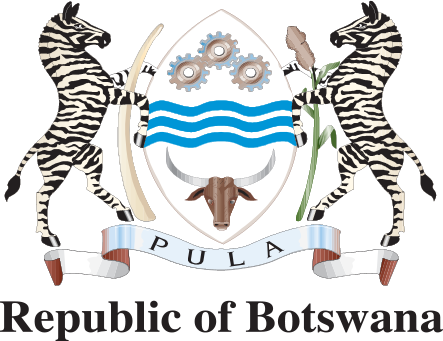The National Strategy Office (NSO) is mandated to coordinate the development and implementation of national strategies through research, management, monitoring and evaluation of sectoral strategies. It started operating in 2010 as an action item of the Botswana Excellence Strategy and operates under the Office of the President.
The goal of NSO is to facilitate the growth of a vibrant economy through the provision of strategic guidance in the conception and implementation of Government policies, programs and initiatives. It has been pivotal in offering strategic guidance to the government through the High-Level Consultative Council (HLCC) and the Economic Committee of Cabinet (ECC). NSO also collaborates with other government bodies and promotes partnerships between government, private sector and non-state actors.
NSO is currently leading in the development and implementation of the National Monitoring & Evaluations System (NMES) and facilitates Ministerial Performance Reviews (MPRs). It also coordinates the development and implementation of the National Cluster Strategy for diversification of exports and the economy of which the three strategies of Beef, Tourism and Finance & Knowledge-Intensive Business Services (F&KIBS) strategies are complete. The strategies have been handed to relevant entities (Ministries) for implementation while Diamond Beneficiation and Small Stock strategies are to be developed.
NSO also played a very significant role in the development of the Vision 2036 Framework to facilitate the country's long-term development priorities. It currently serves as a secretariat for the National Transformation Strategy team which is mandated to develop a strategy and roadmap for Botswana's transformation agenda.
The structures of NSO consists of four main divisions and three Units;
Divisions;
- Research and Development
- Strategy Management
- National Performance
- Corporate Services
The three units are;
- Thematic Working Groups (TWGs) Coordination Unit
- Mega Projects Unit
- The PR Communications Unit
Research and Development Division
The functions of the Research and Development Division are as follows:
- Guides and informs the determination of national priorities;
- Conducts socioeconomic research and intelligence;
- Identifies emerging issues/challenges and opportunities;
- promotes knowledge and information management;
- Supports the monitoring and evaluation functions of the Office; and
- Serves as the Secretariat to the Economic Committee of Cabinet (ECC)
Strategy Management Division
The Strategy Management Division is responsible for:
- Promoting strategic linkages across sectors;
- Providing advice and guidance on emerging issues/challenges and opportunities;
- Building capacity for strategic management and policy analysis;
- Supporting the effective utilization of monitoring and evaluation results;
- Providing secretariat services to the High-Level Consultative Council (HLCC).
National Performance Division
The National Performance Division is responsible for;
- Reviewing and evaluating all national policies, strategies, projects and programs;
- Monitoring performance of partnerships within the Office and with external groups;>
- Identifying strategy implementation gaps in the various sectors;
- Providing strategy guidance on closing implementation gaps;
- Providing policy guidance and support in the development and implementation of the National Monitoring and Evaluation Framework.
Corporate Services Division
The Corporate Services Division is responsible for:
- The Corporate Services Division is responsible for Human Resources Management, Records Management, Finance management, Procurement management and Administration matters. The function of Information Technology (IT) is provided by seconded Officers from the Department of Information and Technology (DIT).
Thematic Working Groups (TWGs)
The TWG’s were established during the development of National Development Plan 10 and are an important vehicle to create joint ownership of issues and strategies by all the partners in development. The TWGs thus support national development, planning, implementation, monitoring, reporting and evaluation of Botswana’s Vision 2036 and National Development Plan 11.
TWGs are used to ensure the efficient and effective implementation of Government projects and programmes.
Objectives of the TWGs:
- To build consensus on the key result areas, development outcomes and program
- Indicators and Targets, and to monitor and Evaluate Performance
- To ensure alignment of Policies, Programmes and Projects to identifies outcomes
- To secure synergies and linkages amongst programmes and role players
- To determine Lead Agency/Ministry for each Priority Area
- To ensure efficient budgeting against thematic area priorities; and
- To monitor implementation of NDP Programmes and Projects.
The PR Communications Unit
- The PR Communications Unit is responsible for developing communication strategies; promoting and managing information sharing within government, and between the public and strategic partners.
National Strategy Office - Office of the President
Private Bag 00274
Gaborone
Tel: 363 1700
Fax: 397 4260, 390 6105
Physical Address:
Debswana House, Main mall
Plot 1188-1195
